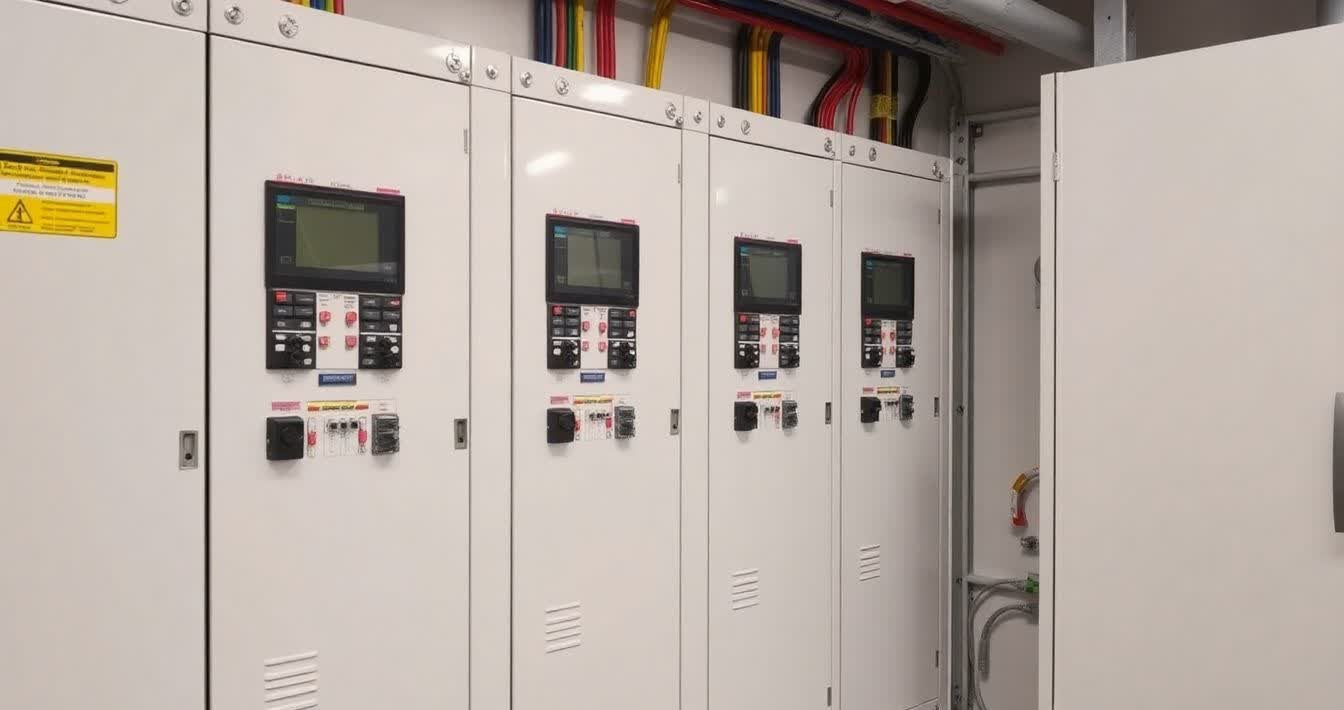
The Rise of Modular Electrical Panels: Flexibility for Growing Needs
As homes and businesses evolve to meet modern demands, so too must the electrical systems that power them. Traditional electrical panels, while reliable, often lack the adaptability required to accommodate changing energy needs. Enter modular electrical panels—a revolutionary solution designed to offer flexibility, scalability, and ease of use. This innovative approach is quickly gaining traction as a smarter way to manage electricity in an ever-changing world.
What Are Modular Electrical Panels?
Modular electrical panels are advanced systems composed of interchangeable components that can be easily added, removed, or reconfigured. Unlike traditional panels, which are fixed and require professional rewiring for upgrades, modular panels allow users to adapt their electrical systems without extensive modifications. These panels are ideal for environments where energy demands fluctuate or grow over time, such as expanding households, growing businesses, or smart homes with evolving technology needs.
Key Advantages of Modular Electrical Panels
1. Scalability
One of the standout features of modular panels is their ability to scale with your needs. Whether you’re adding new appliances, installing solar panels, or integrating smart home devices, modular panels can be expanded to handle increased loads. This eliminates the need for costly and disruptive panel replacements, making them a future-proof investment.
2. Ease of Installation and Upgrades
Traditional electrical panels often require invasive installations or upgrades, but modular panels simplify the process. Their plug-and-play design allows electricians—or even tech-savvy homeowners—to add or replace modules with minimal effort. This reduces labor costs and downtime, ensuring your system remains operational during updates.
3. Enhanced Safety Features
Modular panels are equipped with cutting-edge safety technologies, such as built-in Arc Fault Circuit Interrupters (AFCIs) and Ground Fault Circuit Interrupters (GFCIs). These features provide real-time protection against electrical faults, reducing the risk of fires and shocks. Additionally, many modular panels include remote monitoring capabilities, allowing users to track performance and identify potential issues before they escalate.
4. Integration with Smart Technology
In an era of smart homes and IoT devices, modular panels seamlessly integrate with connected systems. They can communicate with energy management platforms, enabling users to monitor consumption, automate energy-saving routines, and optimize efficiency. For businesses, this means better control over operational costs, while homeowners enjoy greater convenience and sustainability.
5. Cost Efficiency
While the initial investment in a modular panel may be higher than a traditional one, the long-term savings are significant. By avoiding frequent replacements and minimizing downtime, modular panels reduce maintenance and upgrade expenses. Moreover, their ability to support renewable energy sources like solar panels makes them a cost-effective choice for eco-conscious consumers.
Applications Across Industries
Residential Use
For homeowners, modular panels offer unparalleled flexibility. Whether you’re renovating, adding new rooms, or adopting energy-efficient technologies, these panels adapt effortlessly. They’re especially beneficial for smart homes, where the demand for connected devices continues to rise.
Commercial Spaces
Businesses benefit from modular panels’ ability to scale with growth. As companies expand operations, introduce new equipment, or implement energy-saving initiatives, modular panels ensure their electrical systems remain robust and reliable. This adaptability is particularly valuable for industries like retail, hospitality, and manufacturing.
Renewable Energy Integration
Modular panels are a perfect match for renewable energy systems. They can easily incorporate solar inverters, battery storage units, and other components, creating a cohesive and efficient energy ecosystem. This makes them an excellent choice for eco-friendly homes and businesses aiming to reduce their carbon footprint.
Challenges and Considerations
While modular electrical panels offer numerous advantages, there are a few considerations to keep in mind:
- Initial Cost : The upfront expense may be higher than traditional panels, though the long-term benefits often outweigh this.
- Compatibility : Ensure that the modular system you choose is compatible with existing infrastructure and future expansion plans.
- Professional Installation : Although modular panels are easier to work with, proper installation by a licensed electrician is still essential to ensure safety and compliance.
The Future of Electrical Systems
The rise of modular electrical panels reflects a broader trend toward adaptable, user-friendly technologies. As energy demands continue to grow and shift, these panels provide a dynamic solution that meets the needs of modern homes and businesses. By offering flexibility, safety, and integration with smart technologies, modular panels are paving the way for a more efficient and sustainable future.